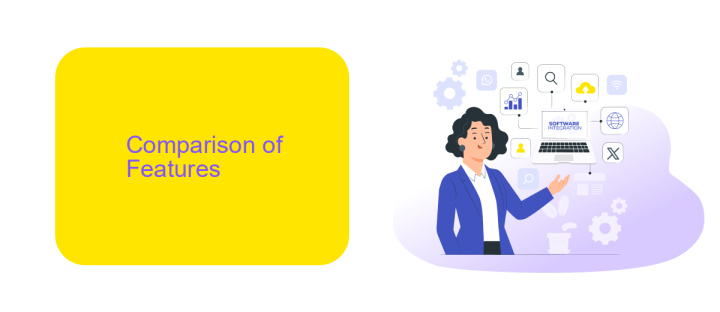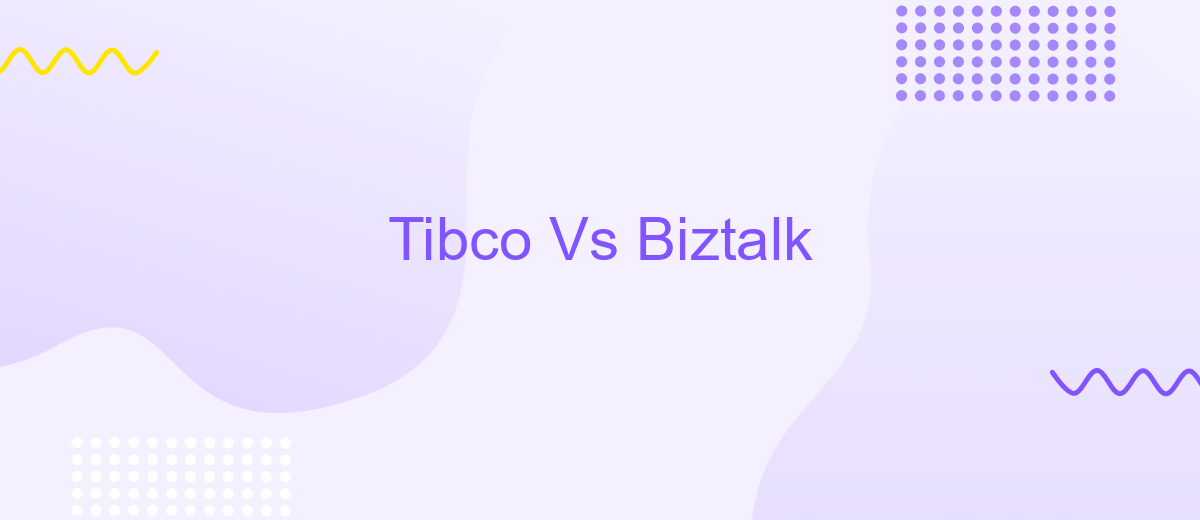Tibco Vs Biztalk
When it comes to enterprise integration solutions, Tibco and BizTalk are two prominent contenders. Both platforms offer robust tools for connecting disparate systems, automating workflows, and ensuring seamless data exchange. This article delves into a comparative analysis of Tibco and BizTalk, examining their features, performance, and suitability for various business needs to help you make an informed decision.
Introduction
In the ever-evolving landscape of enterprise software, integration platforms play a critical role in ensuring seamless communication between various applications and services. Two prominent players in this domain are Tibco and BizTalk. Both offer robust solutions for integrating disparate systems, but they cater to different needs and preferences.
- Tibco: Known for its high-performance integration and real-time data processing capabilities.
- BizTalk: A Microsoft product that excels in enterprise application integration, particularly for businesses already invested in the Microsoft ecosystem.
- ApiX-Drive: A versatile tool that simplifies integration tasks, making it easier to connect various applications without extensive coding.
Choosing the right integration platform depends on various factors such as existing infrastructure, specific business requirements, and budget constraints. This article aims to provide a comprehensive comparison of Tibco and BizTalk, helping you make an informed decision. Additionally, we'll explore how ApiX-Drive can complement these platforms by offering an easy-to-use interface for setting up integrations quickly and efficiently.
Comparison of Features

Tibco and BizTalk are both robust integration platforms, yet they offer distinctive features catering to different business needs. Tibco excels in real-time data processing and event-driven architecture, making it ideal for organizations that require immediate data insights and responses. It supports a wide range of protocols and standards, ensuring seamless integration across various systems. Additionally, Tibco's user-friendly interface and comprehensive analytics tools enable businesses to monitor and optimize their integration processes effectively.
On the other hand, BizTalk is renowned for its deep integration with Microsoft products, making it a preferred choice for enterprises heavily invested in the Microsoft ecosystem. It offers extensive support for B2B communication and EDI standards, facilitating efficient partner interactions. BizTalk's robust mapping and transformation capabilities simplify complex data exchanges. For businesses looking to streamline their integration setup, services like ApiX-Drive can be invaluable, providing automated workflows and easy-to-use connectors to integrate various applications without extensive coding.
Integration Capabilities

When comparing Tibco and BizTalk for their integration capabilities, it's essential to understand their strengths and how they cater to different business needs. Both platforms offer robust solutions, but they excel in distinct areas.
- Tibco: Known for its real-time data processing and event-driven architecture, Tibco is ideal for enterprises requiring high-speed data transfers and complex event processing. It offers a wide range of connectors and adapters to integrate various systems seamlessly.
- BizTalk: Microsoft's BizTalk Server is renowned for its tight integration with other Microsoft products and services. It provides a comprehensive set of tools for managing business processes, including orchestration, transformation, and communication between disparate systems.
Both platforms can be further enhanced using services like ApiX-Drive, which simplifies the integration process by providing user-friendly tools for connecting various applications without the need for extensive coding. This can be particularly beneficial for businesses looking to streamline their integration efforts and improve overall efficiency.
Architecture and Scalability

Tibco and BizTalk are both robust integration platforms, each with unique architectural approaches and scalability features. Tibco leverages a distributed architecture, enabling seamless integration across various systems and applications. This architecture facilitates high availability and fault tolerance, ensuring that business processes remain uninterrupted.
On the other hand, BizTalk employs a hub-and-spoke architecture, centralizing integration processes through a single hub. This allows for easier management and monitoring of integrations but may introduce a single point of failure. BizTalk's architecture is well-suited for enterprises that require centralized control and oversight.
- Tibco's distributed architecture supports horizontal scaling by adding more nodes.
- BizTalk's hub-and-spoke model can scale vertically by enhancing the central hub's capabilities.
- Both platforms offer robust tools for monitoring and managing integrations.
- Integration services like ApiX-Drive can complement these platforms by providing additional automation and connectivity options.
Ultimately, the choice between Tibco and BizTalk depends on the specific needs and existing infrastructure of the organization. Tibco's distributed nature is ideal for complex, large-scale integrations, while BizTalk's centralized approach offers simplicity and ease of management for smaller to mid-sized enterprises.
Pricing and Licensing
When comparing the pricing and licensing models of Tibco and BizTalk, it's essential to consider the specific needs and scale of your business. Tibco offers a flexible pricing structure with options for subscription-based licensing, which can be more cost-effective for businesses that prefer operational expenditure (OPEX) over capital expenditure (CAPEX). Tibco's licensing also includes various tiers, allowing companies to scale their investment as their integration needs grow. Additionally, Tibco provides a range of support and training services, which can be beneficial for organizations seeking to maximize their return on investment.
On the other hand, BizTalk employs a more traditional licensing approach, typically involving a one-time purchase with additional costs for maintenance and support. This can be advantageous for businesses that prefer a predictable, upfront investment. BizTalk's pricing model is generally suited for larger enterprises with substantial integration requirements. For those looking to streamline integration processes further, tools like ApiX-Drive can complement both Tibco and BizTalk by offering simplified, automated integration solutions, thereby reducing the overhead associated with manual integration tasks. Ultimately, the choice between Tibco and BizTalk will depend on your organization's budget, integration complexity, and long-term strategic goals.


FAQ
What are the primary differences between Tibco and BizTalk?
Which is more suitable for cloud-based integration?
How do Tibco and BizTalk handle scalability?
What are the licensing and cost considerations for Tibco and BizTalk?
Are there any third-party tools that can help with the integration and automation for Tibco and BizTalk?
Time is the most valuable resource in today's business realities. By eliminating the routine from work processes, you will get more opportunities to implement the most daring plans and ideas. Choose – you can continue to waste time, money and nerves on inefficient solutions, or you can use ApiX-Drive, automating work processes and achieving results with minimal investment of money, effort and human resources.

